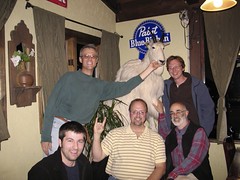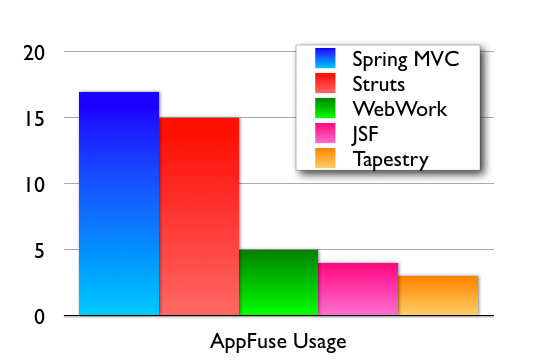RE: WebWork joins Struts
From the struts-dev mailing list:
Between the Clarity hubbub and the Java Web Alignment brouhaha, it came up that WebWork would like to merge with another
framework. Ted and Don followed up with the two core WebWork
developers, Patrick Lightbody and Jason Carreira. As it turns out,
they are very interested in merging WebWork with Struts. An archive of
our discussions is available as a Quick Topic thread.
As some of you know, the underlying idea behind Ti was to use WebWork
as the core of Struts Action Framework 2.x. Conceptually, WebWork and
Struts 1.x are very similar. We've often said, without embarrassment,
that WebWork does many things better than Struts 1.x. Meanwhile,
WebWork has the ability to provide a layer of almost full
backwards-compatibility for Struts 1.x, and we have already
demonstrated we can integrate Beehive's (very cool) Page Flow with
WebWork.
Yes, it's true. The WebWork development team (Jason and I) have been working with the Struts development team (Don Brown and Ted Husted) and have come to the conclusion that the best thing for Java community would be to merge WebWork in to Struts.
Read Ted's email here, but the gist of it is this: WebWork is a great technology, and Struts is a great community. It's a perfect match and bringing the two together will only be better for WebWork and Struts users alike. The only down side for me is that I'll be working less with OpenSymphony, but I believe that is a small price for all the great benefits that come from this merger.
...
With this renewed energy, larger development team, and larger community, the combined efforts of Struts and WebWork will surely make the Struts platform the easiest, fastest, and most powerful Java web framework available. We hope that all the WebWork users and developers are as excited about this as we are and are ready to take WebWork to the next level.
IMO, this is good for both Struts and WebWork. WebWork gets the additional marketing it needs, and Struts users get a kick-ass framework to develop with. If you're a Struts user and haven't tried WebWork, prepare to be impressed. I was and still am.
I plan to upgrade AppFuse and Equinox to WebWork 2.2 as soon as its released. Hopefully I'll be able to migrate both the Struts and WebWork versions to SAF 2.0 w/in a few months.







